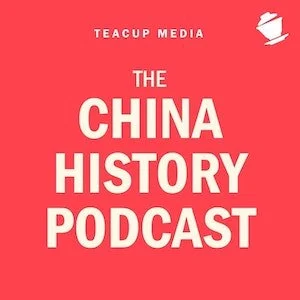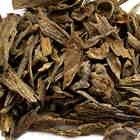Ep. 312 | The History of Taiwan (Part 3)
In this Part 3 episode, we look at Shi Lang and his victory over Zheng Jing, Liu Guoxian, and the Dongning Kingdom. When it was all over in 1683, for the first time in history, Taiwan fell under China rule. Now the Manchus needed to figure out what to do with this prize. Corrupt officials and heavy-handed governing methods contributed to the endless uprisings and rebellions witnessed on the island throughout the 18th century. The Qianlong Emperor will have his hands full trying to keep things peaceful in Taiwan. We close with the ultra-violence meted out during the Lin Shuangwen Rebellion of 1787-1788.
Listen On Your Favorite Podcast Player
Terms in Episode
| Pinyin/Term | Chinese | English/Meaning |
|---|---|---|
| Shī Láng | 施琅 | 1621-1696, Chinese admiral who served under the Ming and Qing. He is best remembered for his great victory at the Battle of Penghu where he annhilated the forces of the Dongning Kingdom. He was also a great advocate for Taiwan annexation |
| Quánzhōu | 泉州 | City in southern Fujian adjacent to Xiamen |
| Zhèng Zhīlóng | 郑芝龙 | 1604-1661, Chinese admiral, merchant, general, pirate and Qing official. He built a massive pirate syndicate and controlled much of the trade up and down the Fujian coast. Father to Zheng Chenggong (see below) |
| Zhèng Chénggōng | 郑成功 | Also known as Koxinga, 1624-1662, Ming loyalist general who founded the Dongning Kingdom that lasted 1661-1683 |
| Míng Dynasty | 明朝 | The Ming Dynasty, founded by Zhu Yuanzhang. It lasted 1368-1644 |
| Qīng Dynasty | 清朝 | Last imperial dynasty of China 1644-1912 |
| Kāngxī Emperor | 康熙帝 | The third Qing Emperor. He reigned 1661-1722 |
| Dōngníng Kingdom | 东宁王国 | The Dongning Kingdom 1661-1683 |
| Zhèng Jīng | 郑经 | Son of Zheng Chenggong who ruled the Dongning Kingdom from 1662-1681 |
| Xiàmén | 厦门 | Major city in southern Fujian, also known as Amoy |
| Wú Sānguì | 吴三桂 | 1612-1678, a Ming Dynasty military officer who played a key role in the fall of the Ming dynasty and the founding of the Qing |
| Shàng Kěxǐ | 尚可喜 | 1604-1676, one of the "Three Feudatories" who rebelled against the Manchu's in the 1670's |
| Gěng Jīngzhōng | 耿精忠 | Son of Geng Jimao, he was also one of the "Three Feudatories" who rebelled against the Qing |
| Liú Guóxuān | 刘国轩 | 1628-1693, major military figure of the Dongning Kingdom |
| Fújiàn | 福建省 | Coastal province in China located on the opposite side of the Taiwan Strait from Taiwan |
| Pénghú | 澎湖 | Also popularly known as the Pescadores Islands. This is an archipeligo of 90 islands in the Taiwan Strait covering an area of 141 square km. The largest city is Magong |
| Zhèng Kèshuǎng | 郑克塽 | 1670-1707, third and final king of the Dongning Kingdom. He was the grandson of Koxinga |
| Battle of Pénghú | 澎湖之战 | The deciding battle between the navies of the Qing and Dongning Kingdom |
| Qiánlóng | 乾隆帝 | Qing Emperor who reigned 1735-1796 |
| Hǎi Jiāng Zhòng Dì | 海疆重地 | An important coastal frontier territory |
| Yù Yǒnghé | 郁永河 | Writer of "The Small Sea Travel Diaries" Bì Hǎi Jì Yóu 裨海纪游 |
| Chén Dì | 陈弟 | 1541-1617, Ming philologist, official and traveler who wrote "A Brief Account of Island Barbarians" |
| Shēng | 生 | Among many many definitions, it means ripe, green, uncooked |
| Shú | 熟 | ripe, cooked, processed |
| Gāoshān | 高山 | Literally means tall mountains. So the Gaoshan people were those aboriginals who resided in the mountainous two thirds of the island |
| Sān Nián Yī Fǎn Wǔ Nián Yī Luàn | 三年一反五年一乱 | Every three years an uprising, every five years a rebellion |
| Jiāyì | 嘉义 | |
| Zhūluóshān | 诸罗山 | Former name of Jiayi |
| Táinán | 台南 | Located on the southwest coast of Taiwan, this is where the earliest recorded history began with the arrival of the Dutch in 1624. Tainan was where the Dutch built Fort Provintia and Fort Zeelandia |
| Táizhōng | 台中 | City on the west coast of Taiwan that also served as the provincial capital |
| Lín Shuǎngwén Rebellion | 林爽文事件 | 1786-1788, major anti-Qing rebellion caused by persecution of the secret Tiandihui (heaven & Earth) Society. It spiraled out of control and resulted in much bloodshed and destruction |
| Xīnzhú | 新竹 | City on the northwest coast of Taiwan |
| Hokkien | 福建 | In the Minnan dialect, the people, language and culture of southern Fujian |
| Táiběi | 台北 | The city of Taipei |
| Gāoxióng | 高雄 | The city of Kaohsiung on the southwest coast of Taiwan |
| Zhū Yīguì | 朱一贵 | The leader of a Taiwanese uprising against Qing dynasty rule in mid-1721. He was also known in popular history as the Duck King |
| Zhāngzhōu | 漳州 | City on the southern coast of Fujian |
| Hakka | 客家 | A Han Chinese subgroup whose ancestral homes are chiefly in the Hakka-speaking provincial areas of Guangdong, Fujian, Jiangxi, Guangxi, Sichuan, Hunan, Zhejiang, Hainan, Guizhou in China, as well as in parts of Taiwan. Unlike other Han Chinese subgroups, the Hakkas are not named after a geographical region in China. The word Hakka or "guest families" is Cantonese in origin and originally refers to the Northern Chinese refugees fleeing social unrest, upheaval and invasions in northern parts of China who migrated to the south. |
| Dù Jūnyīng | 杜君英 | Fellow rebel leader during the Lin Shuangwen Rebellion |
| Táiwān Fǔ | 台湾府 | The former name of the capital of Taiwan when it was located in present-day Tainan |
| Emperor Yǒnghé | 永和帝 | The regnal name assumed by Li Shuangwen during the rebellion which bears his name |
| Shíquán Wǔgōng | 十全武功 | The so called Ten Great Campaigns undertaken by the Qiánlóng Emperor |
| Zhāngpǔ County | 漳浦县 | A county in Zhangzhou |
| Tiāndìhuì | 天地会 | The Heaven and Earth Society |
| Dàlǐ | 大里区 | A district in southern Taizhong |
| Héshēn | 和珅 | The chief advisor to the Qianlong Emperor during his final years as emperor |
| Fú Kāng’ān | 福康安 | 1748-1796, Manchu noble and general during the Qing |

















his all took place in the final moments of the Warlord Era, right after the Central Plains War. This act perpetrated by warlord Sun Dianying 孙殿英 epitomized the venality of these men.